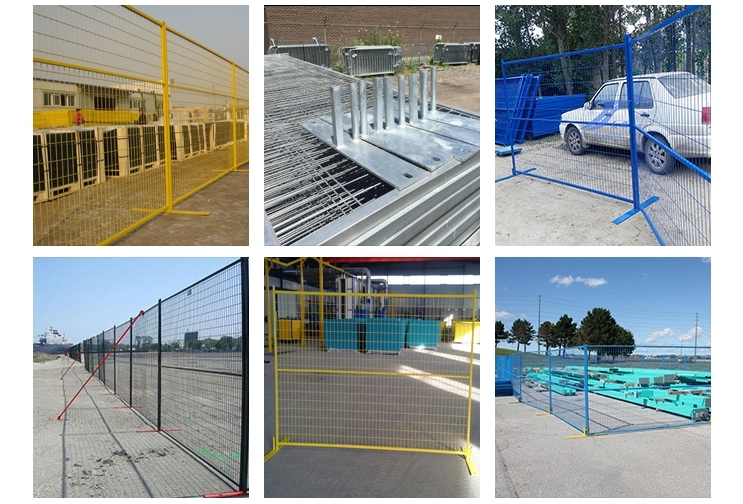Jul . 22, 2024 02:10 Back to list
Leading Manufacturers Specializing in High-Quality Welded Wire Mesh Products and Solutions
Weld Wire Mesh Manufacturers An Overview
Welded wire mesh has become an indispensable material in various industries due to its versatility, strength, and cost-effectiveness. Manufacturers of welded wire mesh produce a range of products that cater to different applications, including construction, agriculture, and industrial uses. This article explores the significance of welded wire mesh, the manufacturing process, and the factors to consider when choosing a manufacturer.
The Importance of Welded Wire Mesh
Welded wire mesh consists of steel wires that are welded together at their intersections. This creates a gridded structure that offers excellent tensile strength and durability. It is widely used for several purposes
1. Construction In the construction industry, welded wire mesh is commonly used as reinforcement in concrete slabs, walls, and foundations. It enhances the structural integrity of concrete, helping to prevent cracking and ensuring longevity.
2. Agriculture Farmers and agricultural producers utilize welded wire mesh for fencing, animal enclosures, and garden supports. Its robustness provides a reliable barrier against larger animals, while also allowing for proper ventilation and sunlight for plants.
3. Industrial Applications In industrial settings, welded wire mesh is used for security fencing, racks, and as barriers in warehouses and factories. Its ability to withstand heavy loads makes it suitable for various storage solutions.
Manufacturing Process of Welded Wire Mesh
The manufacturing process of welded wire mesh involves several key steps
1. Wire Production The process begins with the production of steel wire, which can go through various treatments to enhance its strength and corrosion resistance. This treatment may include galvanization, which adds a protective zinc coating.
2. Mesh Formation The wires are then set in a grid pattern, either by hand or through automated machinery. The spacing between wires can be customized based on specific requirements.
weld wire mesh manufacturers

3. Welding Once the grid is formed, the intersections are subjected to high-temperature welding. This is a critical step that ensures the wires are securely bonded together, creating a strong, cohesive structure.
4. Finishing Touches After welding, the mesh undergoes finishing processes, which may involve cutting to size, further treatment for corrosion resistance, or even painting, depending on its intended use.
Choosing a Weld Wire Mesh Manufacturer
When selecting a welded wire mesh manufacturer, several factors should be considered to ensure you receive high-quality products
1. Quality Standards Look for manufacturers that adhere to industry standards and certifications. A company that complies with ISO or ASTM standards demonstrates a commitment to quality.
2. Customization Options Different applications require different specifications. A good manufacturer should offer customization in terms of wire diameter, mesh size, and finish.
3. Experience and Reputation Consider the manufacturer's experience in the industry. Established companies with a solid reputation are more likely to deliver reliable products.
4. Customer Service Effective communication and customer service are essential. A manufacturer that is responsive to inquiries and provides excellent support can greatly enhance your purchasing experience.
5. Pricing While cost should not be the only consideration, it is important to compare prices across several manufacturers. Ensure that you are getting value for your money without compromising on quality.
Conclusion
Welded wire mesh manufacturers play a crucial role in providing essential materials across various industries. Understanding the manufacturing process and considering key factors when selecting a supplier can help businesses and individuals choose the right welded wire mesh for their needs. With its versatility and strength, welded wire mesh continues to be a vital component in construction, agriculture, and industrial applications.
-
Leading Galvanized Steel Fence Factory | Durable & Secure Fencing
NewsAug.24,2025
-
Welded Wire Mesh for Industry Factory - Durable & Custom Solutions
NewsAug.23,2025
-
Your Galvanized Steel Fence Factory - Strong, Durable Solutions
NewsAug.22,2025
-
Welded Wire Mesh for Industry: Factory Direct & Custom Solutions
NewsAug.21,2025
-
Welded Wire Mesh for Industry | Factory Direct & Durable Solutions
NewsAug.19,2025
-
Chain Link Fence-Anping County Puersen Hardware Wire Mesh Co., Ltd.|Durable Security&Versatile Applications
NewsAug.18,2025

